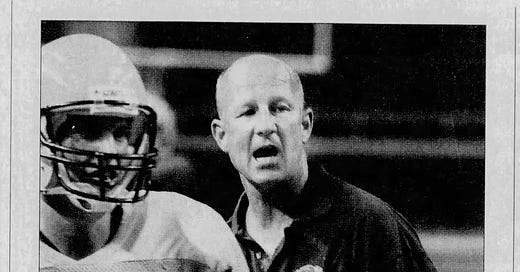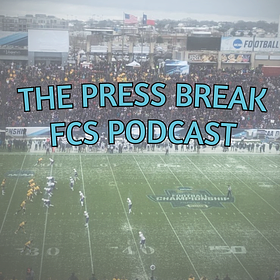Craig Bohl Leaves An Impressive College Football Legacy
The Arizona Bowl marks the conclusion of Craig Bohl’s coaching career, a 40-year odyssey that deserves to be remembered among the most significant in college football history.
Now, the case to be made that Bohl is a legend in the same vein as a contemporary like Nick Saban, or all-time coaching greats including Eddie Robinson and John McKay, starts with the obvious: Bohl coached North Dakota State to three consecutive national championships from 2011 through 2013.
The 2023 college football season demonstrated just how difficult it is to three-peat in this sport: Both Ferris State at the Div. II level and Georgia in the Football Bowl Subdivision opened the campaign ranked No. 1, each pursuing third consecutive national championships.
Ferris State bowed out of the NCAA Div. II Playoffs in the 1st Round to rival Grand Valley State; Georgia fell in the SEC Championship Game to Alabama and missed the College Football Playoff.
That’s not a knock on either of those teams, as their respective defeats extend droughts of nearly 30 years since a program three-peated in Div. II — North Alabama is the only program to accomplish the feat, doing so in the 1990s; and almost 90 years in FBS since Minnesota’s hat trick from 1934 through 1936.
FCS saw a three-peat more recently than the Bohl-led Bison beginning a run unlike any seen in major American sports since the John Wooden-coached UCLA basketball teams of the ‘60s and ‘70s. However, Appalachian State’s three-peat under Jerry Moore from 2005 through 2007 was the only such run in the subdivision prior to Bohl’s.
Erk Russell at Georgia Southern and Jim Tressel at Youngstown State each maxed out at two in a row.
The Championship Rivalry That Helped Shape 21st Century College Football
Four teams remain in the FCS Playoffs with the semifinals this weekend, and for the first time in more than a decade, not one is North Dakota State. The Bison’s run of dominance is arguably the most impressive in modern sports history. It’s also perhaps an indicator that, as bored as most of might be with Alabama and Clemson routinely in the College Foo…
On that accomplishment alone, Craig Bohl joined rarefied air a decade ago. His impact has grown even more noteworthy in the 10 years since, as North Dakota State grew into a historic powerhouse.
Successor Chris Klieman, who was on staff of each of the NDSU title-winning teams from 2011 through 2013, coached the Bison to national championships four times from 2014 through 2018.
Now at Kansas State, Klieman continues to thrive heading up a perennial Top 25 FBS team and has done so in the often doomed-to-fail role one faces as the immediate replacement of a legend.
At K-State, Klieman followed Bill Snyder. And the Wildcats coach said to ESPN last year he was ready for the job having done the same previously at North Dakota State when following Craig Bohl.
“So even stepping up a level when I got to Kansas State, I knew all about pressure and knew I could do the job,” Klieman told Chris Low.
Klieman is part of a coaching tree extend from North Dakota State and Bohl’s tenure directly that includes Washington State’s Jake Dickert.
I asked Dickert about how working with Bohl at NDSU influenced his approach at a power-conference program — in particular, how Bohl managed to find under-the-radar NFL-caliber talent.
Dickert’s discussion of development is especially illuminating in the context of Bohl’s coaching career. Development could be the one word that perhaps best describes why Bohl was so successful.
He took an unconventional path, having played at a juggernaut Nebraska program in the late ‘70s and beginning his coaching career as a graduate assistant on Tom Osborne’s staff.
Bohl spent a season at North Dakota State in the 1980s, but otherwise worked as an assistant at mostly prominent programs: He spent two years coaching linebackers in the Big Ten at Wisconsin; was defensive coordinator at Rice when the Owls were in a major conference (the Southwest); and he coordinated the defense of a Duke team that, in 1994, ascended to No. 16 in the AP Top 25.
All that built up to his return to Nebraska, where Bohl was on staff for two of Osborne’s three national championship-winning Cornhuskers teams. Bohl’s trajectory seemed pretty routine for someone destined to head up a brand-name program.
That makes his move after three years coordinated the Nebraska defense from 2000 through 2002 to a then-still Div. II North Dakota State all the more surprising.
The move to Div. I-AA was already in motion when Bohl arrived. Still, a transitioning D-II program landing a top assistant from a Div. I-A program that claimed three national championships in the previous decade and played for a fourth just two years prior feels like a head-scratcher.
Bohl took a lot of flak for Nebraska’s dip in 2002 under Frank Solich, however — so much so that when I suggested Bohl as a name for the Cornhuskers to consider in the early 2010s amid rumors of Bo Pelini looking elsewhere, I got a considerable amount of blowback from Nebraska fans.
As much animus as Bohl may have generated among Huskers faithful, however, he engendered the opposite feelings from those around NDSU — and did so immediately. The below from a September 2003 Omaha World-Herald feature on Bohl’s initial few weeks leading the Bison declares “Fargo loves him.”
That final Div. II season, NDSU finished 8-3. It was the first of four seasons out of five to begin Bohl’s tenure heading up the Bison in which they won at least eight, including a pair of 10-1 finishes during their transition to FCS.
The first time I ever spoke to Craig Bohl was in 2009, the only losing season of Bohl’s tenure in Fargo. The Bison were in their second season in the Missouri Valley Football Conference, a then relatively new league that hadn’t yet become the dominant force of FCS it is today — but it was trending in that direction.
I wrote an article for NCAA.com on NDSU running back Pat Paschall, and spoke with Bohl about the program’s development after a half-decade in Div. I. Despite the Bison coming off a 3-8 campaign, Bohl spoke with an intense energy that suggested the downturn was temporary.
The next year, NDSU went 9-5 and reached the quarterfinals in the Bison’s first FCS Playoffs.
Bohl spent one season more at NDSU than his tenure at Wyoming, the latter of which may not be celebrated as strongly as his run in Fargo. However, it probably deserves to be.
Bohl will leave Laramie the Cowboys’ all-time winningest coach. This season marks Wyoming’s third straight of bowl eligibility — an unprecedented run in program history — and is the fourth straight producing a postseason appearance when excluding the abbreviated COVID-19 year.
Along with Wyoming’s consistency under Bohl, the coach leaves a college football landscape that is perhaps more conducive to elevating leaders who follow unconventional paths like his.
Klieman’s success at K-State is a testament to this. Beyond Bohl’s tree specifically, the upcoming College Football Playoff features undefeated participants in Washington’s Kalen DeBoer and Michigan’s Jim Harbaugh; DeBoer cut his teeth at the NAIA level and worked opposite Bohl in the MVFC at Southern Illinois.
Harbaugh worked his way up from being an assistant at then-Div. I-AA Western Kentucky, then got his break at non-scholarship University of San Diego coaching in the Pioneer Football League.
Craig Bohl and these contemporaries of his speak to the quality of football being played in lower divisions, and underscore their importance to the overall college football landscape.






